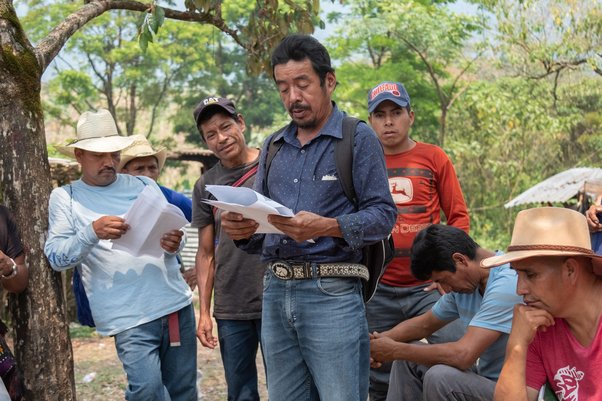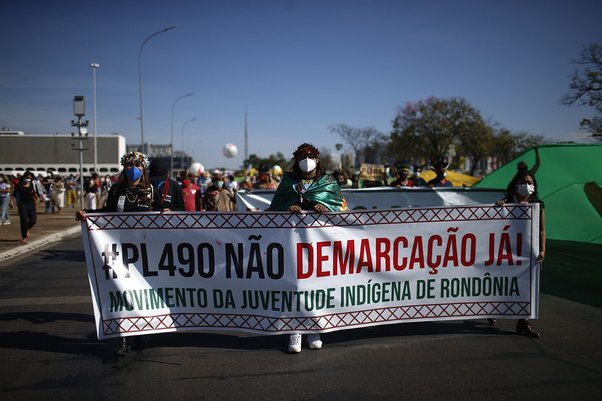The murder of Berta Cáceres in 2016 brought global attention to the risks faced by land and environmental defenders in Honduras. Her murder, linked to her opposition to a mega-dam which would have threatened a vital water source for the indigenous Lenca people, highlighted access to water as a key driver of conflict in the small Central American country.
Honduras: the deadly fight for clean water
Five years since her murder, there are few signs of improvement. Honduras remains one of the most dangerous countries for environmental defenders, with nearly 140 murdered since 2012 – and many more being criminalised simply for standing up for their rights to their land and a healthy environment.
The experience of the Guapinol community, explored in the our Defenders of the Earth podcast, shows that access to clean water is still a major battle in which national authorities, far from protecting the rights of their citizens to this most basic of human needs, are frequently the opponent.
Our struggle started when they damaged the river: seven months of sedimentation, when we couldn’t use the water to brush our hair, or even for our animals.
For the residents of the village of Guapinol, in northern Honduras, their problems began in 2014 when the Honduran government granted a mining concession within the Carlos Escaleras National Park, not far from Guapinol. As the mining project got underway, residents say its operations began to pollute their local water sources with sediment.
Finding themselves without a reliable source of drinking water due to the mine, and fearing that its continued operation may block the Guapinol rivers altogether, the community came together to protest the mining concession and appeal to the authorities to protect their right to clean water.
Yet, in a pattern which is sadly all-too-familiar for land and environmental defenders, the authorities responded not with genuine concern for the harm done to the residents of Guapinol or an attempt to mediate the conflict between them and the mining company – but with intimidation and arrests.
On 7 September 2018, a peaceful protest camp set up to oppose the mine was stormed by armed security guards employed by the mining company. One of the protestors was shot and seriously injured. The Honduran police, rather than investigate and prosecute the instigators of this violence, have instead targeted the peaceful protestors themselves.
At least 18 members of the Guapinol community have faced arrests and even imprisonment, yet the incident involving the mining company’s security guards has never been officially investigated. Edy Tabora, a lawyer for some of the imprisoned protestors, believes that the arrests were politically motivated – an attempt to intimidate the local community into acquiescence.
…even the United Nations Working Group on Arbitrary Detention has established that the eight comrades are illegally detained and that the accusation has been an expression of punishment by the Judicial Power and the Public Ministry towards the fight in defence of the environment by the defenders of Guapinol.
This is a recurring theme, not just in Honduras, but for land and environmental defenders around the world. Wherever the rights of communities are poorly enforced, or undermined by collaboration between the authorities and commercial interests, those who try to stand up for their rights find themselves at risk. The killings of defenders highlighted in Global Witness’s annual reports represent the most visible and severe of these risks. But defenders just as frequently find themselves targeted with intimidation and arbitrary detainment as an effort to silence them.
For the Guapinol community, justice will only be done when those currently in prison are released, and the Honduran authorities uphold their right to clean water – rather than taking the side of the mining company which is polluting it.
Juana Zúniga, whose husband has been in prison for 22 months, remains hopeful that her community will see justice, and remains determined to keep fighting for it:
I say to myself: we are going to see this company leave because we did not bring it. And just as it came, so it will go. … I feel that victory is near. Soon this river will be free.


